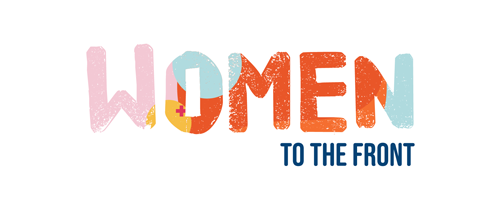We have a massive reason to celebrate this week. Two reasons, in fact.
The first is that 10 days of paid family and domestic violence leave as an entitlement for all workers has been made law. Union members have campaigned tirelessly for a decade to make this happen and we have finally seen the leave become a reality.
This historic reform will give millions of workers the right to access 10 days paid leave to escape volatile and dangerous domestic violence situations.
It has taken years of campaigning to get to this win, but more importantly, it has taken thousands of individuals coming together to share their stories and take part in protests, petitions, meetings and negotiations.
This moment deserves to be celebrated and remembered. Make sure you register for our special documentary film screening of the story of all the incredible women who fought so long to win this right.
The second is that the Labor Government dedicated $42.5 million to the implementation of recommendations from the Respect@Work report in the Federal Budget this week.
The funding announcement is a huge moment for working women in Australia whose calls for safe workplaces were repeatedly ignored under the previous Morrison Government.
A move away from a passive approach to sexual violence
There is scientific evidence that sexual harassment at work affects both psychological and physical health – it can lead to anxiety, depression, high blood pressure and heart problems. Above all, the impact of sexual harassment can result in lifelong effects on a victim’s self-worth and sense of security.
We expect our employers to protect us from other hazards that threaten our safety at work – and for the last few years, the union movement, along with key trailblazers, have worked hard to ensure that sexual harassment is recognised as one of these workplace hazards.
Support is always available
-
Call 000 if you, a child, or another person is in immediate danger.
-
1800RESPECT: Call 1800 737 732 if you or someone you know is impacted by sexual assault, domestic or family violence.
-
No to Violence Men’s Referral Service: Call 1300 766 491 for anonymous and confidential telephone counselling, information and referrals for men.
-
Kids Helpline: Call 1800 55 1800 for 24/7 counselling for Australian children and young people.
-
Q Life: Call 1800 184 527 for anonymous and free LGBTQIA+ peer support and referral.
On 20th June 2018, Australia’s Sex Discrimination Commissioner Kate Jenkins announced a national inquiry into sexual harassment in Australian workplaces. From the report, a new model was recommended that was evidence-based, victim-focused and framed through a gender and intersectional lens.
The report demonstrated that women are the most likely to experience sexual harassment at work – with women of colour at even greater risk. These marginalised groups already face an uphill battle in remaining and thriving in the labour market – with barriers caused by the gender pay gap, caring duties, the devaluation of women’s work, and family and domestic violence.
The Respect@Work Bill is a set of recommendations recently introduced to parliament based on Jenkins’ report. The Bill, ignored by the previous Government, proves to change the way we handle sexual harassment at work.
Jenkins states: “Sexual harassment is not a women’s issue: it is a societal issue, which every Australian, and every Australian workplace, can contribute to addressing.”
This new legislation will shift the burden of responsibility of victims onto employers by introducing a positive duty on employers to take all reasonable action to prevent sexual harassment at work, including harassment by third parties – like customers and clients of workers.
Given that many incidents of sexual harassment go unreported, the problem is likely much bigger than we know. The impact of these changes will mean that women can do their jobs safely and thrive in the workplace, regardless of their gender or sexuality.
ACTU President Michele O’Neil summed it up when she said, “We will not have gender equality while women are having to leave jobs because they feel unsafe.” These structural changes have been mercilessly and bravely fought for – and will change the world of work for women forever.
Union women at their mightiest
We know that structural change is key to addressing issues in our workplaces and across society. But it doesn’t come quickly or easily – union members, along with dedicated and passionate advocates have been fighting for years to achieve wins like paid family and domestic violence leave. From the first seed planted by an Australian Services Member and all the way to parliament house, workers in unions have been at the forefront every step of the way.
As union members, our actions are never for the advancement of the individual alone. That’s why we act to make changes that benefit everyone. You. Your coworkers. Your family. Their coworkers. Union members are building fairer and safer workplaces for today – and tomorrow.
When working people are united with a shared vision, nothing can stop us.












SHARE:
Structural change the key to women’s safety in the workplace and at home